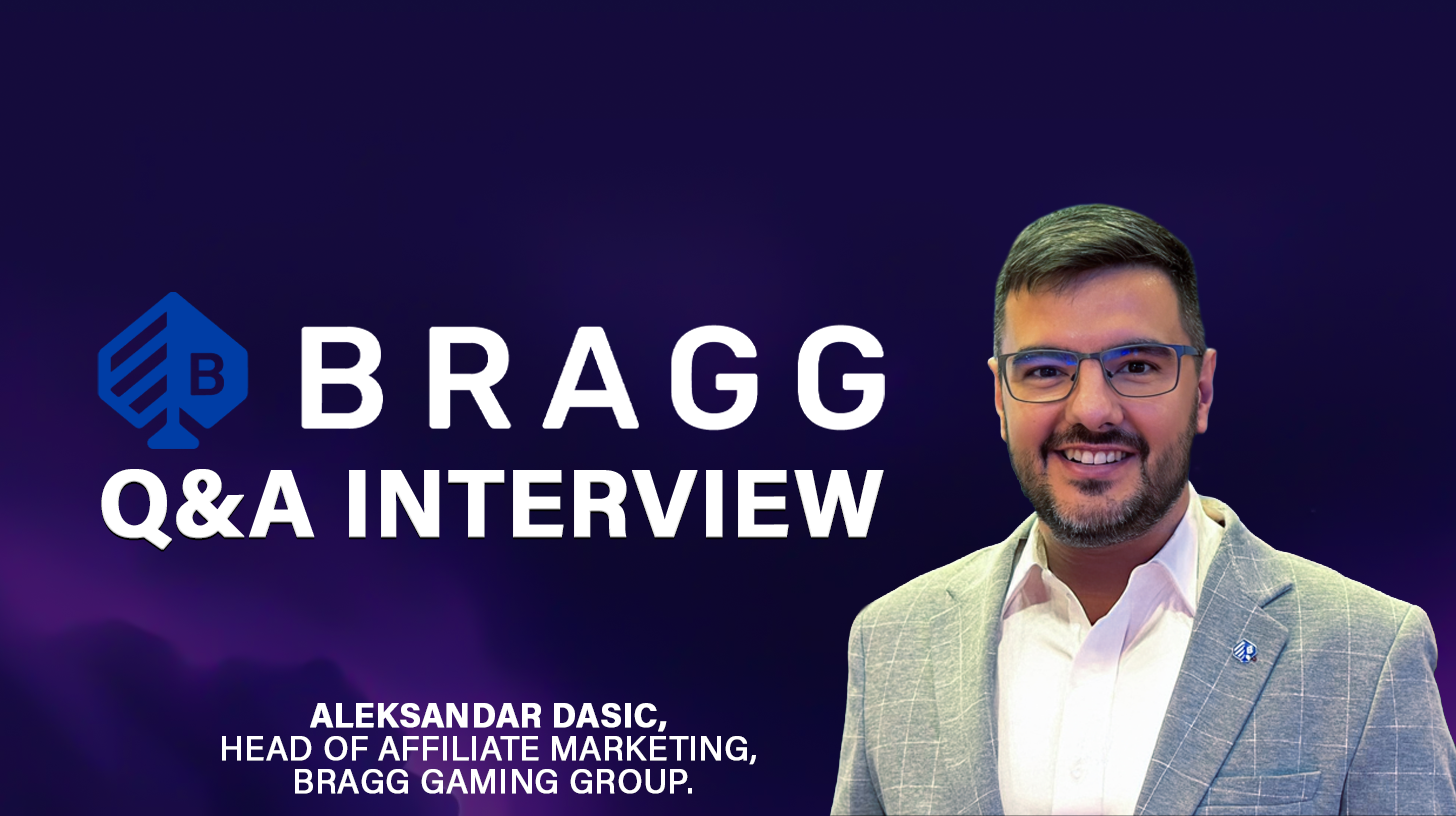Daniel Kalinowski Q&A
Our latest Q&A focuses on Blueprint Gaming’s Rise of Atlantis Legacy, the sequel to Rise of Atlantis and Rise of Atlantis 2. We spoke to Daniel Kalinowski, Affiliate and Social Media Manager, about how their latest underwater adventure differs from the rest.
Josh: Rise of Atlantis: Legacy reintroduces the Rising Multiplier mechanic in a fresh way. How has this evolved from the original Rise of Atlantis, and what kind of new dynamics does it bring to the gameplay experience?
Daniel: In the original Rise of Atlantis, the Rising Multiplier was relatively passive. It increased with consecutive cascading wins, which added excitement, but it didn’t offer much in terms of player interaction or visual feedback. It was effective, but straightforward.
With Legacy, that mechanic has been completely reimagined. Multipliers now appear as bubble symbols on the reels. When they contribute to a win, they stick in place and ascend one position with each cascade. This adds a dynamic visual layer to the game, players can literally watch their multipliers rise, which builds anticipation and makes each spin feel more alive.
Josh: This time, players can choose between the Rise of Atlantis and Gates of Atlantis bonus rounds. What was the creative reasoning behind giving players that choice in Legacy, and how do the two bonuses cater to different playstyles?
Daniel: This evolution brings a lot more strategic depth to the gameplay. Players can choose their bonus, whether they want steady growth or explosive potential. It also enhances replayability, because each session can feel completely different depending on the path you take.
Josh: The Gates of Atlantis feature introduces the Total Win Multiplier, which feels like a bold step forward. How does that mechanic build anticipation across cascades, and how does it differ from the more classic approach seen in the first game?
Daniel: Players aren’t just reacting to individual wins; they’re actively building toward something bigger. Each cascade becomes a stepping stone, and the longer the bonus round lasts, the more potent that multiplier becomes. It creates a sense of momentum and payoff that’s both visual and emotional.
From a design perspective, it also adds strategic nuance. Players are incentivised to trigger multipliers early and keep the cascades going, knowing that every small win contributes to a much larger potential payout down the line.
In short, the Total Win Multiplier transforms the bonus round from a series of isolated spins into a progressive, compounding experience. It’s a bold evolution that enhances both engagement and reward, and it’s a great example of how thoughtful mechanics can elevate the entire gameplay journey.
Josh: The max bet range reaches £100 in the main game and up to £5,000 in bonus buys, which is quite rare. Does this reflect growing demand from VIP and international markets, or was it a conscious design choice for Legacy’s positioning?
Daniel: On one hand, we’ve seen a clear upward trend in demand from VIP players and international markets, particularly in regions where high-stakes gaming is more culturally embedded or legally supported. These players are looking for titles that offer not just entertainment, but also the potential for deeper engagement. By extending the max bet range to £100 in the base game and £5,000 in bonus buys, Rise of Atlantis: Legacy caters directly to that audience, offering them the flexibility and thrill they expect.
Ultimately, the high bet ceiling helps position Legacy as a premium experience, one that appeals to both high-value players and operators looking to offer standout content in competitive markets.
Josh: You’ve mentioned that Rise of Atlantis: Legacy is aimed at both free spins fans and grid slot players. How do you merge those audiences in one title without diluting the experience for either group?
Daniel: When we set out to create a game that appeals to both free spins enthusiasts and grid slot players, we knew we had to strike a careful balance. These audiences often have different expectations: free spins fans are typically drawn to escalating multipliers and high-impact bonus rounds, while grid slot players enjoy cascading mechanics, symbol clusters, and the satisfaction of building momentum through chain reactions.
To merge those experiences without compromising either, we focused on mechanical synergy. The game uses a 6×5 grid with cascading wins, a familiar and satisfying format for grid slot players, but layers in multiple free spins modes that cater to different play styles.
Josh: The original Rise of Atlantis was a popular release. When developing Legacy, how did you ensure it feels like a true continuation rather than just a re-skin or sequel for the sake of it?
Daniel: We started by identifying what made the original game resonate: the Rising Multiplier mechanic, the mythological theme, and the cascading win structure. We then asked ourselves how we could make the experience from the first game feel deeper in Legacy.
That led to innovations like the bubble multipliers that rise and persist across cascades, and the introduction of multiple free spins modes, each with distinct mechanics and volatility profiles. These weren’t just cosmetic changes; they fundamentally altered how players interact with the game.
Ultimately, we treated Legacy not as a sequel, but as a narrative and mechanical continuation. It’s a game that acknowledges its roots but isn’t afraid to grow beyond them. I think that’s why it feels like a true evolution rather than a re-skin.
Josh: Blueprint has a strong track record with evolving existing IPs through new mechanics. What did you learn from the success of the first Atlantis game that directly shaped Legacy’s design and pacing?
Daniel: When we began developing Legacy, we knew we had to preserve that core feeling while expanding its depth. That led to the introduction of bubble multipliers that physically rise on the grid, adding visual tension and a layer of anticipation. It also inspired the creation of multiple free spins modes.
Another lesson was the importance of clarity in pacing. In the original game, the multiplier mechanic was effective but somewhat passive. With Legacy, we made sure every mechanic, whether it’s the ascent of a multiplier or the accumulation of global bonuses, is clearly communicated to the player. That transparency helps to keep the player engaged, especially in longer sessions.
Josh: Finally, Rise of Atlantis: Legacy feels like a statement game – bigger features, higher stakes, and more player control. Does this signal a broader direction for Blueprint, where legacy titles evolve into full-blown series with layered bonus systems?
Daniel: Absolutely. I think Rise of Atlantis: Legacy is very much a blueprint for where Blueprint Gaming slots is heading with our more volatile games.
We’re building games that are deeper, more customisable, and designed to evolve over time. It’s about creating ecosystems, not just one-offs. And I think players are ready for that.














